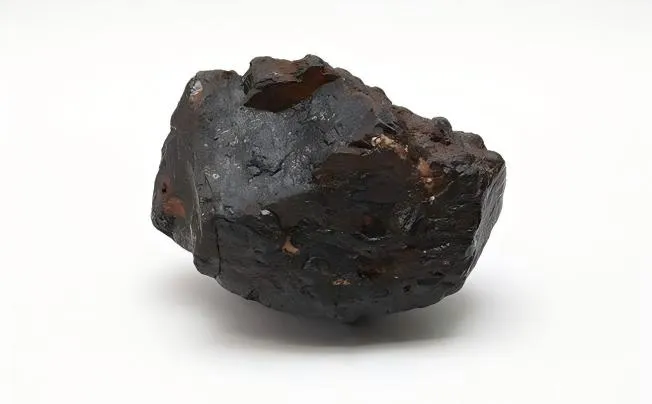Petroleum coke, often called petcoke, plays a crucial yet understated role in numerous industrial applications. This carbon-rich material is primarily generated from the thermal cracking of heavy crude oils during the oil refining process. While it may not be as widely recognized as crude oil or gasoline, Pet Coke's unique properties make it essential for various sectors, including energy production and manufacturing.
Definition of Petroleum Coke
Petroleum coke is a solid carbonaceous material generated as a byproduct during the refining process of crude oil. The refinement involves cracking heavier fractions into lighter hydrocarbons for fuels like gasoline or diesel; what remains after these processes are heavy residues that can be further processed into petcoke through coking processes such as delayed coking or fluid coking. Consequently, petcoke exhibits properties similar to coal but with significantly higher carbon content—often exceeding 90%.
One defining characteristic of petroleum coke is its various types based on sulfur content: low-sulfur petcoke (LSP) and high-sulfur petcoke (HSP). These classifications determine its suitability for different applications; LSP is favored in industries with stringent emissions regulations. HSP might find utility in less regulated environments or specific types of industrial processes such as power generation or cement production.
Furthermore, due to its high calorific value and stability at elevated temperatures, petroleum coke has emerged as a preferred choice among manufacturers seeking sustainable alternatives for fossil fuels without compromising performance standards.
Importance of Petroleum Coke in Various Industries
Petroleum coke serves multiple important roles across various industries due to its desirable chemical characteristics. In particular, it has become indispensable in both energy generation and metallurgical applications. When used as a fuel source in power plants or industrial boilers, petcoke provides an economical alternative compared to traditional coal because it typically offers higher energy density at lower costs per unit of energy produced.
In addition to being utilized directly for combustion purposes in power generation facilities, petcoke also finds application within metallurgical processes—most notably aluminum smelting where it functions as a key ingredient along with other materials such as pitch-derived binders during anode production processes essential for electrolysis operations. The incorporation of low-sulfur varieties ensures reduced emissions during these high-temperature reactions which aligns with contemporary sustainability initiatives pursued by many corporations committed towards minimizing their environmental footprints.
Moreover, the cement industry leverages petroleum coke not only for combustion but also incorporates it into kiln feed mixtures largely because certain grades exhibit favorable properties under harsh thermal conditions encountered within rotary kilns used extensively throughout production cycles—offering enhanced strength profiles over conventional alternative fuels like coal while simultaneously capitalizing upon cost-effectiveness margins derived from utilizing waste byproducts originating from crude oil refinements!
Petroleum Coke Shipping
The three primary modes utilized for transporting this valuable commodity are bulk carriers, rail transportation, and truck/tanker trucks.
- Bulk Carriers
Bulk carriers stand out as one of the most common methods for shipping petroleum coke across vast distances. These specialized vessels are designed to carry unpackaged bulk cargo such as petroleum coke in large quantities.
Their expansive cargo holds allow for efficient loading and unloading processes, minimizing turnaround time at ports while maximizing operational efficiency. Given the granulated nature of petroleum coke, which can vary significantly in size and density, bulk carriers must be equipped with specialized features to handle these variations effectively.
The stability and strength of bulk carriers are paramount when transporting heavy substances like petroleum coke. Modern designs optimize hull shapes and structural integrity to endure harsh maritime conditions while ensuring cargo safety.
Furthermore, operators must be well-versed in handling methodologies specific to petroleum coke—understanding how best to load and distribute weight across the vessel’s holds is crucial for maintaining balance during transit.
- Bulk carriers come in various sizes, with Panamax and Capesize vessels being popular choices for transporting petroleum coke. The loading and unloading processes at ports are meticulously executed to ensure the safe transfer of this valuable cargo.
- Rail Transportation
Rail transportation is another prominent mode employed for shipping petroleum coke, especially for domestic or regional deliveries. Rail infrastructure plays a vital role in facilitating the smooth movement of petroleum coke from production sites to end-users.
Stringent safety regulations and compliance measures govern rail transportation to guarantee the secure transit of this hazardous material. The efficiency and reliability of rail networks make them a preferred choice for transporting petroleum coke overland routes.
The benefits of rail transportation extend beyond just capacity. Railroads often have dedicated freight lines that can handle heavy loads and are designed to minimize transit times.
This aspect is particularly important as petroleum coke needs to reach customers promptly to satisfy the demands of various industries that rely on its properties as an energy source and carbon feedstock. Additionally, rail facilities equipped with specialized loading and unloading systems make handling easier and more efficient, ensuring that the quality of the product remains intact during transport.
However, while rail transportation offers many advantages, it also requires careful planning and coordination between various stakeholders—rail operators, refiners, and end-users must work together seamlessly. Effective scheduling becomes essential to synchronize deliveries with production cycles at refineries versus consumption schedules at industrial plants that utilize petroleum coke.
Safety Regulations and Compliance
Safety regulations surrounding the shipment of hazardous materials such as petroleum coke are stringent due to their potential environmental impact if mishandled during transit. Various national agencies oversee these safety standards; compliance not only protects public health but also helps maintain corporate responsibility among shippers involved in moving this product across state lines or internationally via rail networks. Compliance starts with proper training for all personnel involved—from those handling loading at refineries to those operating trains carrying these loads through populated areas or environmentally sensitive regions.
Safety drills should be conducted regularly so workers understand how best to mitigate risks associated with spills or accidental releases during transport processes—a critical aspect given concerns about air quality control due throughout multiple states along major railway corridors. Furthermore, all carriers transporting petroleum coke are mandated by law (such as DOT regulations) to provide detailed manifest documentation indicating what substances are being transported along with emergency response guidelines should any incident occur en route—the goal being timely reporting mechanisms help contain situations before they escalate into larger-scale disasters affecting communities along railroad tracks traversed by trains loaded down with hazardous materials like pet-coke.







